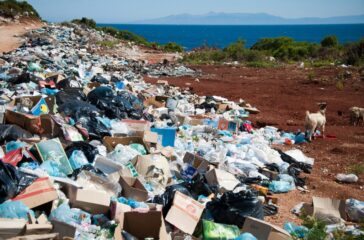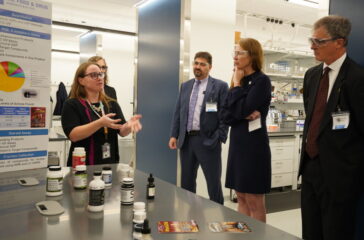Postcard from California: Plastics ‘recycling’ – out of sight, out of mind
By Bill Walker
Last year California shipped more than 156 million pounds of plastic waste to poor countries, with almost three-fourths sent to Mexico and another 44 million pounds sent to developing nations in Asia, Latin America, and Africa. That’s the reality behind the blue recycling bins Californians fill with plastic waste for curbside pickup. We may think we’re recycling, but we’re really sending much of our waste out of sight, out of mind.
 EWG
EWG








